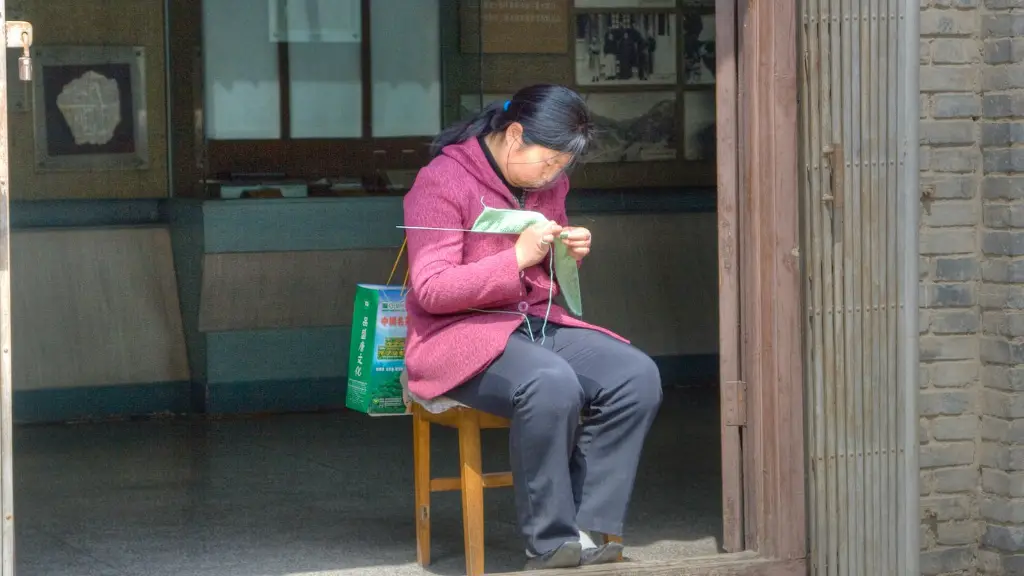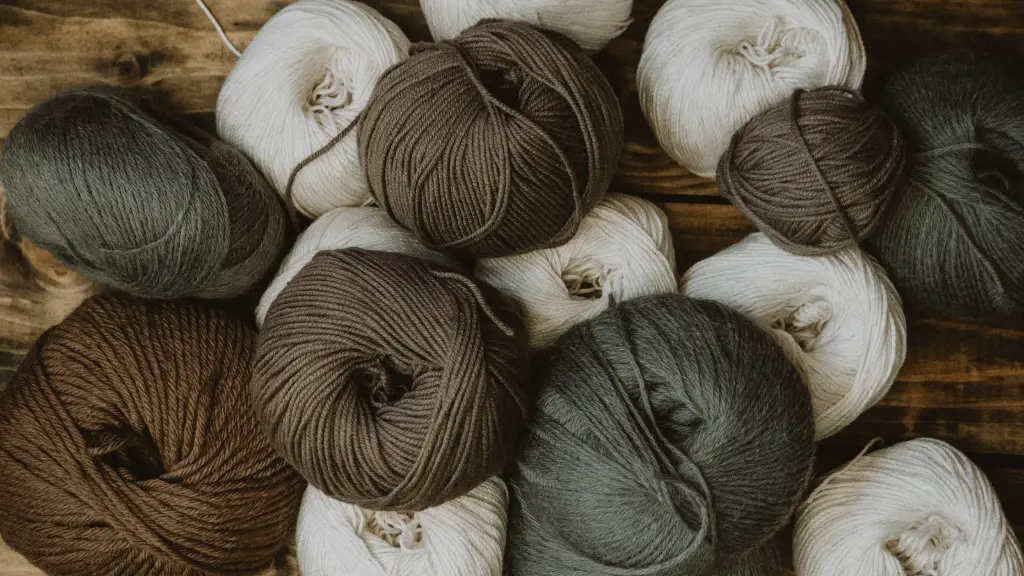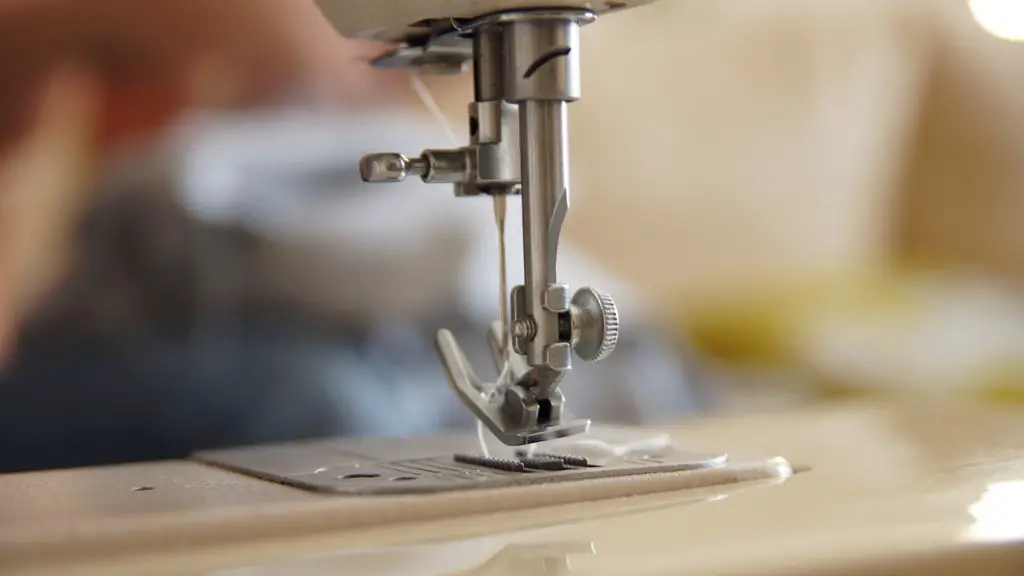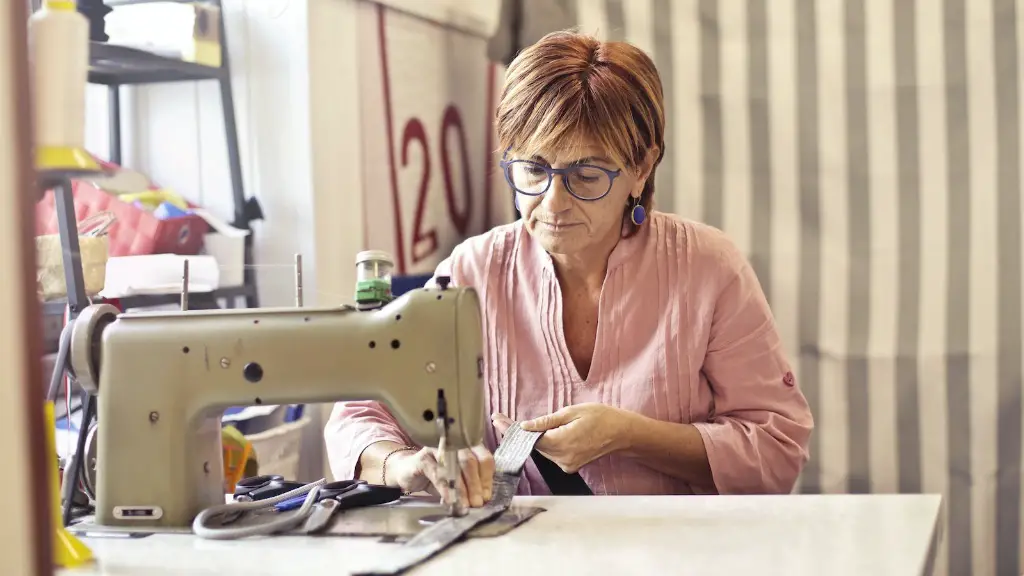Learning how to sew or embroider can be a pleasurable and relaxing experience, but it can also be daunting. Sewing machines can range in price and function, so knowing how to choose the right one for you is essential. Here are some tips for choosing your first sewing machine.
Firstly, you should consider your budget. Budget is an important factor when picking out a sewing machine, as the range in price can vary dramatically. Do your research and figure out what type of machine falls within your ideal price range. A mid-range machine is usually the most popular for beginners, as it is usually more reliable and well designed than entry level machines.
Secondly, consider the types of projects you plan on undertaking. If you will mainly be using the machine for mending and small repairs, a basic sewing machine with basic stitches should be sufficient. If you are looking to do more complex work like embroidery and quilting, you may want to look into a higher-end machine.
Thirdly, evaluate the features of the machine. If you are an experienced seamstress, you might want to look into a machine with more features such as pattern library, multiple spool holder, and needle threader. If you are just starting out, you can do with a machine with a few simple features, such as the buttonhole, the double-needle stitches, the reverse stitch and the adjustable stitch length.
Fourthly, do some research into the brand. Any reputable brand should make quality products, however, some are more reliable than others. Do your research and read reviews on the models you are interested in.
Lastly, take your time and test out the machine. If you are purchasing a machine from a store, take the time to give it a test-drive and see how it operates. Make sure the machine feels comfortable in your hand and listen out for any weird whirring or grinding noises.
Accessories
Once you’ve chosen your first sewing machine, you should also consider purchasing a few accessories. A good sewing kit should include needles, sewing scissors, fabric chalk, measuring tape, pins, and extra bobbins. These items are essential when you’re starting out, and can make the difference between a successful project and a disaster.
A manual and a guide are also necessary to help you understand the different stitches and operations of the machine. Again, the studio should have them included, but if not they are quite inexpensive to a purchase from a craft store.
Maintenance
Along with the accessories, you will also likely need to purchase sewing machine oil for regular maintenance. Sewing machines are machines and therefore need regular maintenance and upkeep. The oil helps lubricate the internal mechanics and will ensure the machine operates at its peak performance.
It’s also Crucial to clean your machine regularly and make sure it’s well looked after. This can include cleaning the needle plate, cleaning the bobbin area, and changing the needle. All of these steps should be included in the manual, so make sure to read it thoroughly.
Tips and Tricks
Learning how to sew can be a great activity, but there is still much to learn. Try to attend classes at a nearby fabric store, or even online classes, so you can get tips and tricks from those more experienced than you.
Reading tutorials online can also be a useful resource. They can provide visual and written instructions showing how to sew garments, appliqués, and other fabrics. And, most importantly, don’t be afraid to experiment with your machine.
Questions to Ask
When you’re buying a sewing machine, you should be sure to ask the salesperson some questions. What type of warranty does the model have? Is there a return policy? If a customer service representative is not available on-site, it is a good idea to find out beforehand when customer service is available and how long it would take to receive a reply.
Are there any additional accessories or bells and whistles that come with the machine? Do the features meet your needs for your desired projects? Finally, take the time to ask any questions you have about the machine and its operation. Knowing all the features of a sewing machine can help you make an informed purchase.
Conclusion
Purchasing a sewing machine can be a daunting task, as there are many styles and functions on the market. However, with a little research and asking the right questions, you can find the perfect sewing machine for you. The tips outlined above can help you make the most informed purchase possible and start you on your journey of becoming a great seamstress or quilter!



